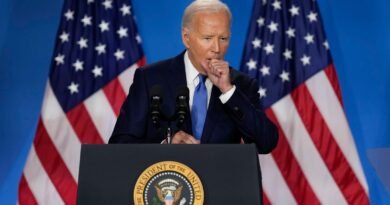Senate Democrats Introduce Constitutional Amendment to Eliminate the Electoral College
Republican Minority Leader Mitch McConnell (R-Ky.) and former President Trump have defended the Electoral College, arguing that it serves to empower smaller states.
On December 16, Senate Democrats introduced a constitutional amendment aimed at dismantling the Electoral College, proposing that presidential elections be resolved through the popular vote instead.
Durbin, along with Senators Brian Schatz (D-Hawaii) and Peter Welch (D-Vt.), crafted the proposal following a similar initiative that emerged in the House the previous week.
“No one’s vote should carry more weight based on their location,” Schatz stated in the press release. “The Electoral College is an outdated system that undermines democracy. It’s time to put an end to it.”
Article II of the Constitution stipulates the creation of the Electoral College, which mandates that states appoint electors to cast votes for the president and vice president.
This practice has faced significant criticism from Democrats including Durbin, who pointed out in his press release that he attempted to abolish the Electoral College in 2000.
“In all but five presidential elections, the winner was the one who received the most votes,” the press release stated. “Of those five instances, two occurred in the past 25 years, when the presidency was awarded to candidates who did not have majority support.”
This statement referred to former Presidents George W. Bush and Donald Trump, who lost the popular vote in the elections of 2000 and 2016, respectively. In the latest presidential election, Trump garnered 49.9 percent of the popular vote against Vice President Kamala Harris’ 48.4 percent.
Trump has alternated between supporting and criticizing the Electoral College in his social media commentary. In 2012, he described it as a “disaster for democracy” yet, in 2019, he proclaimed that he “realizes the Electoral College is far better.”
He further argued that the “brilliance of the Electoral College lies in the necessity of campaigning in many states to achieve victory,” asserting that smaller states would lose influence without it.
A constitutional amendment to eliminate the Electoral College would necessitate approval at both state and national levels.
As per Article V of the Constitution, Congress can present the matter to the states after receiving a two-thirds majority in both the House and Senate. Subsequently, three-fourths of state legislatures or state ratifying conventions must approve the amendment.
This bill specifies that the amendment would come into effect after verification by three-fourths of state legislatures.
However, given the Republican-majority Congress anticipated next year, the bill and amendment appear likely to falter.
McConnell remarked that the Electoral College encourages candidates to engage with voters in smaller states. “Fundamentally, the Electoral College protects Americans from the will of the majority, a concept I’m well acquainted with in the Senate. … Without it, presidents would seldom visit smaller states in Middle America, like Kentucky,” he stated.
The press release from Senate Democrats on December 16 highlighted that 17 states and the District of Columbia “have joined a national initiative to circumvent the Electoral College by agreeing to allocate their electoral votes to the candidate who wins the nationwide popular vote.”




